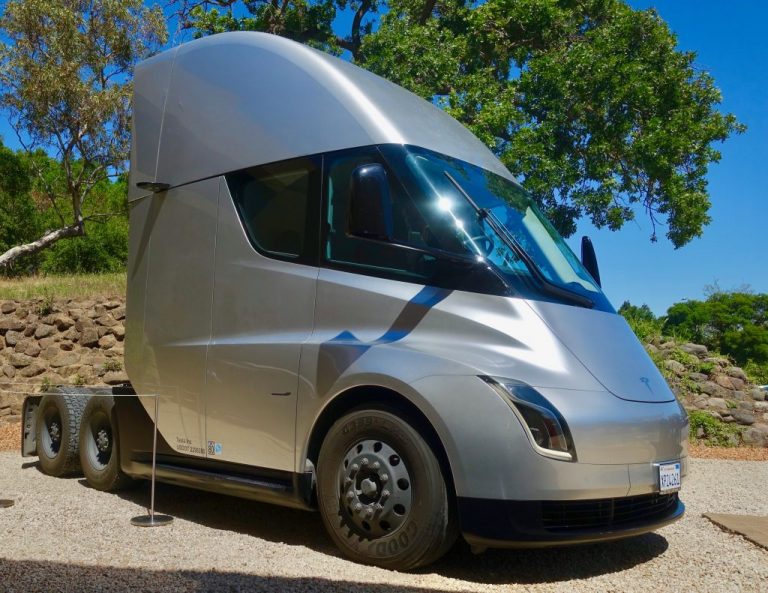Self-driving trucks have received a lot of attention for the past few years. Due to a variety of reasons, investors say that self-driving trucks are more of a probability than self-driving cars. It’s estimated that the shift to self-driving trucks will happen sooner than you think. This has caused some concern throughout the trucking industry partly because of any businesses and jobs that may be affected. In this article, Kenworth Sales Company is going to discuss what may make self-driving trucks attractive and how this industry overhaul could affect us.

What Makes Self-Driving Trucks Attractive?
When Tesla unveiled their self-driving truck in 2017, they focused on several advantages to lure in companies. First, self-driving trucks could cut down delivery times of cargo and goods which means an increase in the number of trips it can make. Second, self-driving trucks could cut down on driver costs and maintenance costs. Third, the whole truck is designed to have greener technology which can be better for the environment and will use no fuel which should also help cut costs. Lastly, it could result to a smaller number of trucking accidents, reducing the number of fatalities.
Businesses have been struggling with finding and retaining truck drivers that deliver their cargo. Freight costs have gone upward and there’s been a shortage of truck drivers. This can be attributed to an aging truck population, low wages and new federal safety regulations that restrict hours on the road. This has led to some businesses finding solutions to try to attract and keep drivers.
What Does It Mean For the Trucking Industry?
Self-driving trucks will lead to truck drivers losing their jobs. If the industry shifts to full automation, there may be less need “manual” drivers. A study from the American Center for Mobility argues however that it is unlikely for self-driving trucks to replace drivers en masse within the next 10 years because businesses and operators will still need drivers to oversee the trips and they argue that self-driving trucks will support drivers rather than replacing them. In any case, automation will bring about changes for drivers – whether their job becomes obsolete or they need to shift how they work so they can work with the technology. Dealerships will also be facing a blow when the shift occurs; with truck inventory sales, services and overall business possibly being affected. Kenworth’s parent company, PACAAR, is working with NVIDIA to eventually make self-driving trucks under the brand.
Other businesses will also be affected, as they rely on truckers for their revenue. Example businesses that would have to deal with the changes range from motels or diners that truckers need for resting and eating.
Is The Shift Happening Anytime Soon?
While there has been some buzz over self-driving trucks and test runs have been made, recent events have shown that they might be further away than what people expected. Starsky Robotics is a self-driving truck start-up that was the first company to operate a semi without a driver on a highway. The company has now shut down due to several reasons and while it is unfortunate for the company, it reveals a lot of drawbacks that show automation isn’t within reach anytime soon. On a blog post that he wrote a few days ago, Stefan Seltz-Axmacher, the co-founder of the company, explains why they had to close down.
Seltz-Axmacher said that investors aren’t too keen on the idea of self-driving trucks anymore, because the technology hasn’t yielded the results they were expecting. “The VCs started to realise early last year that something was amiss in the autonomous industry,” he tells Automotive News. “They’re putting a lot of money in, and they’re not getting anything out.”
There’s also the problem of edge cases: Events that computers can’t predict. Currently, those computers have trouble dealing with these cases because of the randomness and suddenness of several of them. One never knows when a deer is going to run past or if the weather gets too bad for driving on the road. It is going to cost billions more in investment for self-driving trucks to mimic human thinking, and not a lot of people could be willing to invest in this.
Autonomous trucks being commonplace is still a little way down the road. While this isn’t good news for the burgeoning industry, it should give the current trucking industry a bit of relief. Per usual, Kenworth Sales will keep innovating and paying attention to the industry’s climate and adjust accordingly.




